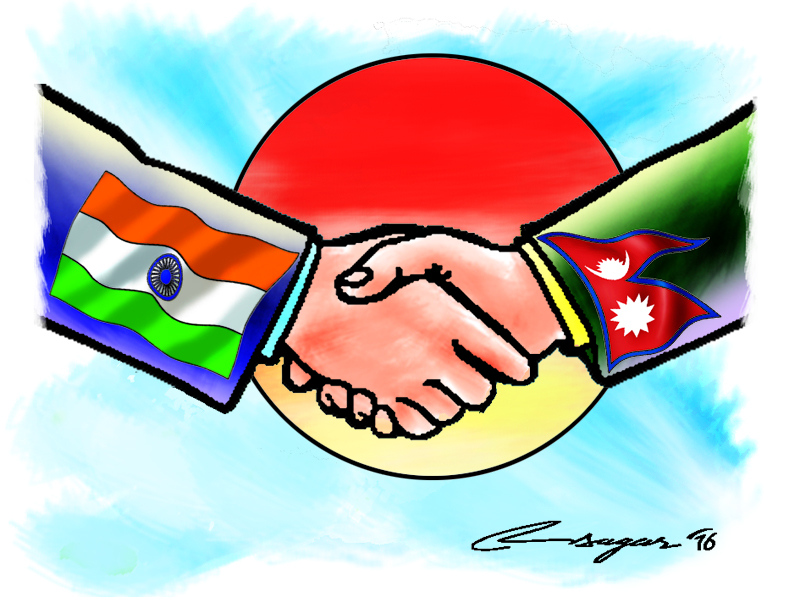Nepal-India Trade Treaty renewed for seven years
Kathmandu, October 27
The Nepal-India Trade Treaty has been extended for another seven years from today without any changes in the existing treaty that was revised the last time on October 27, 2009.
“Though the treaty was renewed automatically for the next seven years, its provisions can be amended or modified by mutual consent of the contracting parties,” said Naindra Prasad Upadhyay, commerce secretary. “Any protocol we need to change in the future can be amended through a letter of exchange.”
The joint commission meetings led by the foreign ministers of both countries held in New Delhi on October 26 and 27 had noted the automatic renewal of the bilateral trade treaty.
The inter-governmental committee meeting led by commerce secretaries of both nations in June this year also agreed to the automatic renewal of the treaty considering the flexible provision of the treaty that any provision can be modified with mutual consent.
There was debate in Nepal regarding revision of the treaty to make it more contextual and to harmonise it with agreements of the multilateral and regional trade regime.
On the other hand, some of the LoEs that were developed for the protocol amendment of the 2009 treaty were also pending and revision of the treaty had been considered the best option to address the pending LoEs.
As per the current provision of the treaty, Nepal cannot extend preferential market access to any country, even on a reciprocal basis. As per the provision, any preference that Nepal extends to any country other than India will have to be extended to the southern neighbour as well.
The Nepal-India Trade Treaty offers many preferences to Nepal on non-reciprocity, but it is not all about non-reciprocal trade preferences provided by India.
Under Article IV of the treaty, Nepal must also provide reciprocal treatment for Indian goods. In this regard, the country needs to exempt customs duties and quantitative restrictions on primary products.
So, as per the treaty, Nepal partially exempts customs duties on imports from India. But the rampant import of agricultural goods from India has been hurting Nepal’s agriculture base.
Similarly, the private sector has long been laying stress on harmonising the provisions of the bilateral trade treaty, especially on value addition calculation of goods and rules of origin criteria.
Another major issue that has been raised by the private sector is elimination of quantitative restrictions. The prevailing treaty provides tariff rate quota on vegetable fats, acrylic yarn, copper and zinc oxide. However, Nepal and India are both members of the World Trade Organisation and tariff rate quota on manufactured goods is normally prohibited by WTO.
Due to the recent tensions between Nepal and India, the time was not favourable for talks on the revision of the treaty, according to officials. For revision, one of the contracting parties must give a prior notice of three months.
The homework for revising the bilateral trade treaty in 2009 was started in 2007.
Purushottam Ojha, former commerce secretary and one of the architects of the 2009 trade treaty, said the revision was made after holding several rounds of dialogue between Indian authorities and Nepali stakeholders, especially the private sector.






